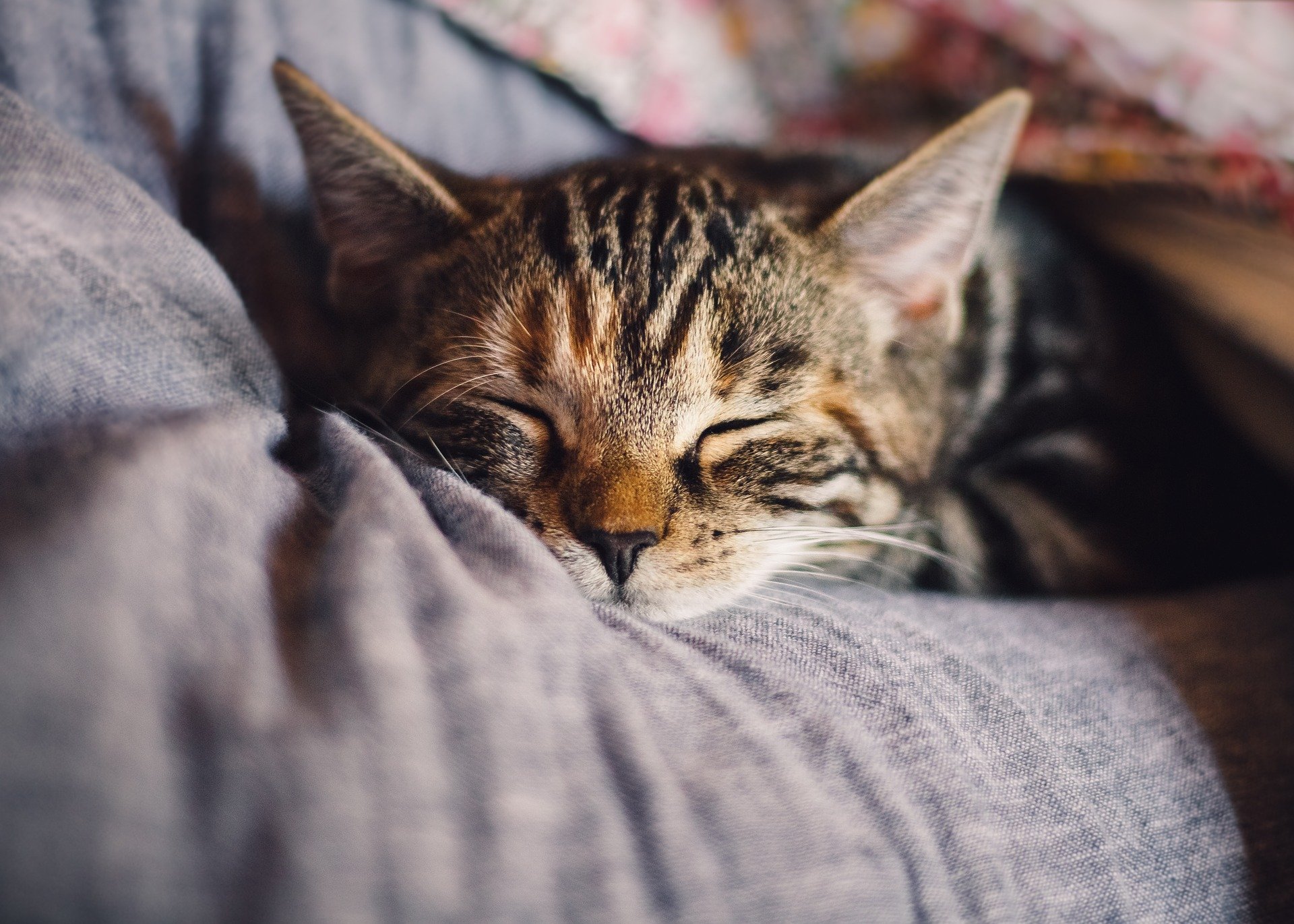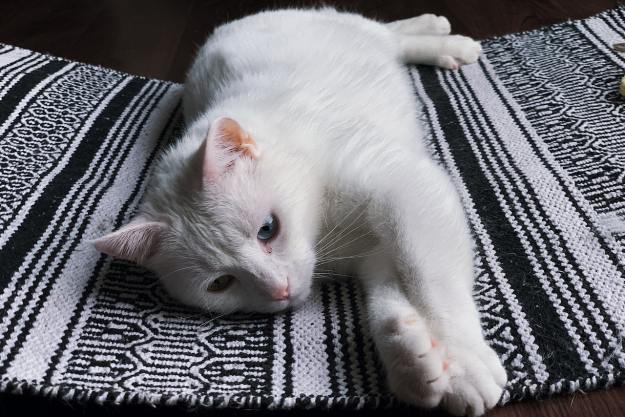Cats are routinely spayed every day, and the surgery has many benefits. PetMD explains that in addition to preventing unwanted pregnancies, spaying your cat can help to reduce the risk of health issues like mammary cancer. It also can help to reduce behavior changes experienced by your cat when she goes into heat. After your cat is spayed, she’ll need some care to help her recover at home. Your vet will give you discharge instructions, but understanding the ins and outs of how to care for a cat after a spay can help to prevent side effects and trips to your vet’s office.

How long will it take my cat to heal after being spayed?
According to Everhart Veterinary Medicine, recovery after a spay typically takes between 10 and 14 days. Your cat should start to act like herself within a few days after the surgery. After that point, your job will be to try to keep her quiet so her sutures can fully heal.
How do I care for my cat after being spayed?
PetMD notes that it’s important to make sure your cat rests after her spay surgery. This can be easier said than done, especially as your cat regains her energy and wants to play or run around her home. You might need to confine your cat to a single room to restrict her activity, and it’s important not to play with her or let her climb stairs during this recovery period.
Your cat will also need to wear an e-collar to keep her from licking at her incision. This gives the incision time to heal and helps to prevent your cat from chewing on the sutures. Some cats tolerate e-collars better than others, and your vet can help to ensure that the e-collar is properly sized for your cat.
It’s also important to carefully monitor your cat after her surgery. You’ll need to be with her for the first 12 to 24 hours following the surgery in order to watch for any bleeding and to make sure she’s urinating normally during this time. You’ll also need to monitor the incision site and check it daily, looking for signs of swelling or oozing. Before you take your cat home, your vet will probably show you the incision and discuss what to look for.
Should I crate my cat after being spayed?
Everhart Veterinary Medicine advises that you restrict your cat’s activity for a full two weeks. In some cases, just confining your cat to a single room can discourage her from running around.
You also can give your cat a comfortable, cozy bed where she can nap. The bed may encourage her to relax and can help to minimize any pain as she’s recovering.
In some cases, confining your cat to a single room might not be enough. PetMD notes that you might need to keep your cat in a crate if she becomes too active. You’ll have to consider how your cat reacts to being in a crate when deciding if this is a viable option for her.

Can I leave my cat alone after being spayed?
According to PetMD, you’ll be able to leave your cat alone eventually but plan to be with her for the first day after she’s spayed. It’s important to watch her for any bleeding during this high-risk time. Once your cat has made it past the first 24 hours after her surgery, you can leave her by herself, but keep in mind that she needs to be in an area that restricts her activity.
If you’re nervous about keeping an eye on your cat when you’re not able to be home, consider installing a pet camera so that you can check in on her through your smartphone while you’re at work. You might also ask a friend or relative to stop in during the day to check on your cat.
In conclusion
Many cats recover from spays without any complications, but you should be aware of signs that something is amiss. A swollen belly, lethargy, difficulty urinating, repeated diarrhea, and lack of appetite can all indicate that your cat is experiencing a serious complication and needs treatment. If you notice any of these signs, take your cat to your vet right away or else to your local emergency veterinary clinic. Otherwise, your cat can usually recover comfortably at home. Be sure to follow your vet’s instructions and administer any medication as directed that the vet sends you home with. Always call your vet right away with any questions or concerns.
Editors' Recommendations
- How to tell if your cat is a Maine Coon mix (and why you should care)
- Is incense bad for cats? 4 important things to consider before using it in your home
- Everything you need to know about the munchkin cat: Some facts may surprise you
- The mystery and beauty of albino cats
- What you can do to help your cat after surgery and show your pet how much you love them



